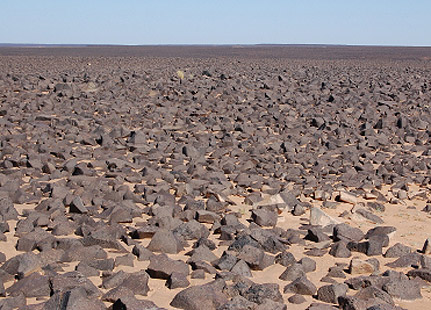
The New Zealand Development Scholarships (NZDS) scheme offers the opportunity to people from developing countries to undertake development-related studies at tertiary education institutions in New Zealand.
New Zealand Development Scholarships in the Open category (NZDS-Open) are available to eligible citizens of the Maldives, Mongolia, Myanmar, Nepal and Sri Lanka. By providing people with knowledge and skills to contribute to the sustainable development of key sectors in their home country, the NZDS scheme aims to reduce poverty, provide better services to the poor in the region, promote good governance and contribute to the human resource base of targeted countries. Capacity building aims to strengthen the institutional and organisational ability of government and non-government organisations (NGOs) and communities with assistance that is appropriate to local needs and that promotes self-sufficiency.
Type, level and number of scholarshipsNew Zealand Development Scholarships in the Open category (NZDS-Open) are awarded for full-time postgraduate level study (i.e. Postgraduate Diplomas, Masters degrees and a limited number of Doctorates (PhD)) in New Zealand. Applicants may be working in the public sector, private sector, or for civil society organisations (including NGOs). Preference will be given to applicants from disadvantaged communities.
Maldives, Nepal and Sri Lanka: Up to nine (9) NZDS-Open scholarships will be offered to eligible candidates for study beginning in the 2011 academic year, with an equitable spread across all three countries.
Mongolia: Up to two (2) NZDS-Open scholarships will be offered to eligible candidates from Mongolia for study beginning in the 2011 academic year.
Myanmar: Up to two (2) NZDS-Open scholarships will be offered to eligible candidates from Myanmar for study beginning in the 2011 academic year.
Priority sectorsIn line with NZAID’s Asia Strategy, scholarships will be awarded for study linked to the following priority sectors:
• sustainable rural livelihoods
• basic education
• primary health
• governance
• trade and development
• conflict prevention and peace building
• development studies
Eligibility criteriaApplicants must meet the following generic NZDS eligibility criteria before their application will be considered further against the selection criteria. Applicants must:
• be a citizen of the Maldives, Mongolia, Myanmar, Nepal or Sri Lanka (permanent residents of these countries are not eligible to apply);
• be residing in their home country, preferably for at least two years prior to application;
• not have citizenship or permanent residence status of New Zealand, Australia or another developed country1;
• not be married or engaged to be married to a person who holds, or who is eligible to hold, citizenship or permanent residence status of New Zealand, Australia or another developed country;
• for candidates from the countries identified above, be 45 years or younger at the time of application;
• be applying to commence a new qualification and not be seeking funding for one already commenced in New Zealand or another country;
• not have completed, or nearly completed, a qualification at a similar level (i.e. applicants must apply for a higher level qualification than any previously attained), unless strong developmental relevance is demonstrated;
• satisfy the admission requirements of the New Zealand education institution at which the qualification is to be undertaken, including English language proficiency criteria;
• have been working in their home country for at least two years since completing their highest tertiary qualification, prior to application;
• be able to demonstrate a strong commitment to their home country’s public, private or civil society sector (as relevant), and to the development of their home country in general; and
• be able to take up the scholarship in the academic year for which it is offered.
English language requirementsNew Zealand tertiary education institutions set their own admission requirements for English language proficiency. As a guide, most New Zealand education institutions require a minimum IELTS2 score of 6.5, with no band less than 6.0, for postgraduate level study. Some postgraduate qualifications require a higher score, especially in the fields of education and the health sciences. All applicants should check the IELTS or TOEFL score required for admission to their selected New Zealand education institution.
It is mandatory for applicants to provide the original copy of their IELTS or TOEFL test result as a pre-condition of the application and placement process. Results must be no older than 24 months at the time of the scholarship start date.
Selection criteriaIn addition to the eligibility criteria above, candidates’ applications will be considered against the following selection criteria:
• the proposed study programme links to one of the identified priority development sectors for the Asia region ;
• the applicant clearly demonstrates the developmental relevance and applicability of their proposed study programme to the human resource development training needs of their country;
• consideration of gender equity, including efforts to ensure the scholarships are offered equitably between male and female candidates;
• the applicant holds a recognised Bachelors degree (for Masters applications) or recognised Masters degree (for PhD applications), of strong academic merit, in general relevant to the proposed postgraduate qualification. (Note: NZAID gives preference to candidates who do not already hold a degree from an industrialised country);
• the applicant clearly demonstrates their links and commitment to their home country (e.g. services to their community, ability to influence change in a key development sector etc), supported by references.
The proposed study programme must be relevant to:
• recent paid and/or unpaid (volunteer) work experiences;
• the training needs of the employing organisation; and
• identified employment opportunities on completion of their study.
• consideration of other factors which will contribute to the success of their studies (e.g. good character, positive study attitude and motivation to succeed).
NZDS-Open applicants apply directly to the New Zealand education institution where they wish to study.







